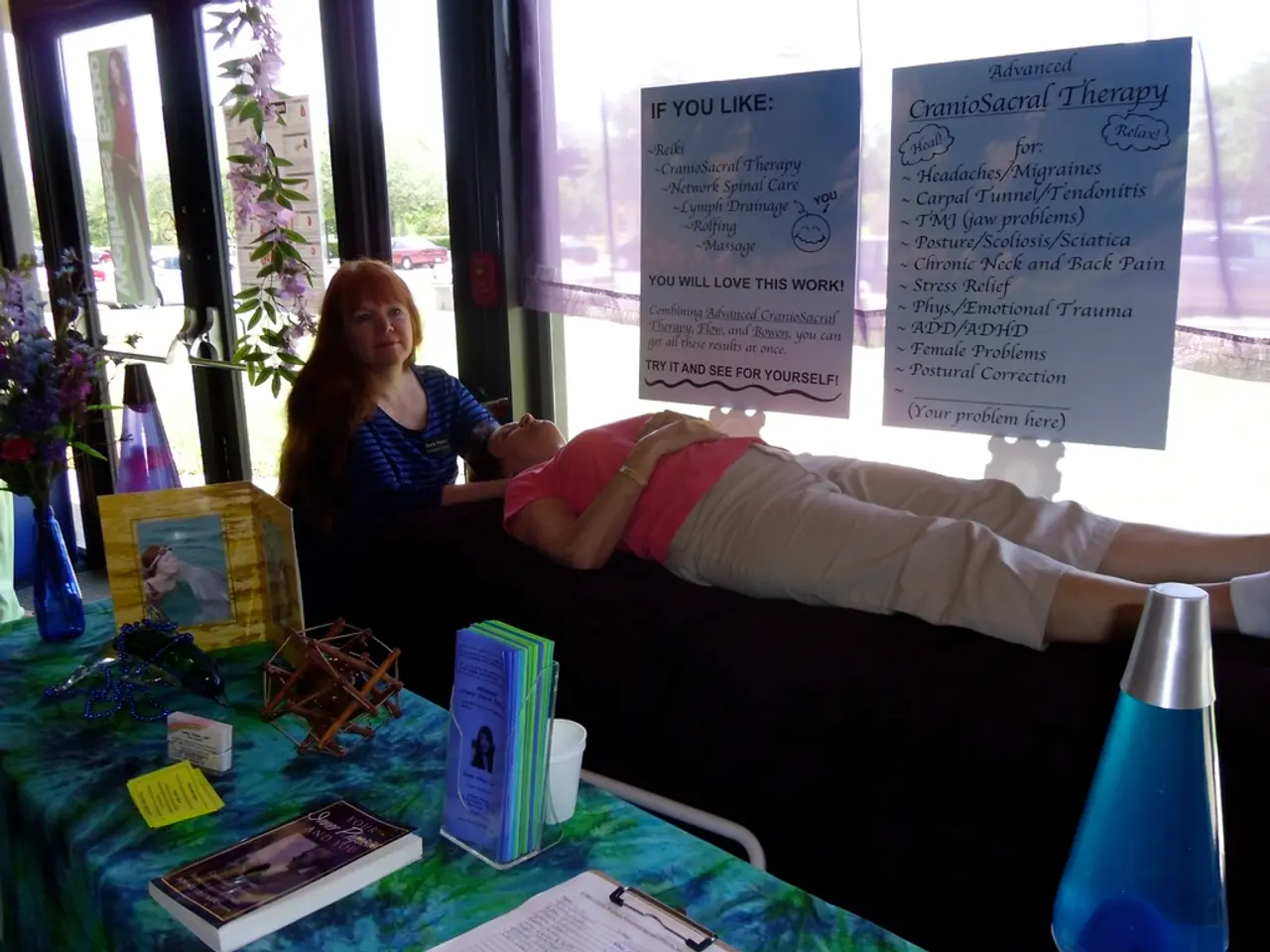Methods for Enhancing Self-Worth Post Childhood Abuse Incidents
In the journey towards self-improvement, rebuilding self-esteem after childhood trauma can be a significant challenge. However, with the right strategies and support, it is possible to foster resilience, reduce shame, and promote a positive, empowered self-perception.
According to a study in the Journal of Social and Personal Relationships, building a support network can help individuals feel more confident and self-assured. This network can include friends, family, peer groups, and community resources. Having a reliable support system provides emotional stability and diminishes feelings of isolation or shame.
Effective strategies for boosting self-esteem after childhood trauma also involve cultivating self-compassion. This practice, as advocated by Dr. Kristin Neff, involves being kind to oneself, using mindfulness to observe negative thoughts without judgment, and recognizing that struggles are a shared human experience. This reduction in shame and fostering of confidence is crucial in the process of self-esteem improvement.
Therapeutic methods such as Cognitive Behavioral Therapy (CBT) and Eye Movement Desensitization and Reprocessing (EMDR) can help individuals mend old wounds and boost self-esteem. CBT helps reframe negative self-beliefs by identifying distorted thought patterns and developing a positive self-image, while EMDR aids in processing traumatic experiences.
Other trauma-informed therapeutic modalities useful in this context include Somatic Experiencing, which addresses trauma stored in the body through grounding and breath work to release tension, and Dialectical Behavior Therapy (DBT), which enhances emotional regulation and resilience, critical for managing trauma-related emotional challenges.
Addressing internalized stigma, recognizing and challenging negative beliefs, is another crucial step in the process of self-esteem improvement. Dr. Martin Seligman's concept of Learned Optimism provides a framework for replacing persistent doubts with life-affirming truths.
Celebrating progress, even small victories, is important in moving forward on the journey to self-esteem improvement. Setting achievable goals and seeing progress can boost an individual's self-esteem. Engaging in mindfulness practices, such as meditation and yoga, can significantly bolster self-esteem, according to the journal Mindfulness.
Prioritizing self-care, including exercise, healthy eating, and activities that bring joy, can improve self-worth. Prosocial activities like helping others can also improve one's sense of purpose and self-worth. Managing relapses, viewing setbacks as detours rather than dead ends, is an important coping skill in the journey to self-esteem improvement.
Exploring creative outlets, such as painting or writing, can provide a therapeutic outlet for individuals dealing with childhood trauma and help boost self-esteem, as supported by the Arts in Psychotherapy journal. Cultivating resilience is essential for bouncing back from adversity, described as essential for overcoming childhood trauma.
The CDC-Kaiser Permanente Adverse Childhood Experiences (ACE) Study found that approximately 61% of adults have experienced childhood trauma. It is crucial to remember that help is available, and with the right strategies and support, it is possible to rebuild self-esteem and move forward towards a healthier, more confident future.
- A reliable support system from friends, family, peer groups, or community resources, as found in studies from the Journal of Social and Personal Relationships, can offer emotional stability and diminish feelings of isolation or shame, helping individuals rebuild self-esteem.
- Cultivating self-compassion, a practice advocated by Dr. Kristin Neff, can help reduce shame, foster confidence, and promote self-esteem improvement by being kind to oneself, observing negative thoughts without judgment, and recognizing that struggles are a shared human experience.
- Therapeutic methods such as Cognitive Behavioral Therapy (CBT) and Eye Movement Desensitization and Reprocessing (EMDR) can aid in mending old wounds, boosting self-esteem, and promoting mental health by helping individuals identify and reframe negative self-beliefs and process traumatic experiences.
- Other trauma-informed therapeutic modalities such as Somatic Experiencing and Dialectical Behavior Therapy (DBT) can help manage trauma-related emotional challenges, enhance emotional regulation, improve resilience, and facilitate self-esteem improvement.
- Engaging in mindfulness practices like meditation and yoga, celebrating progress, even small victories, and exploring creative outlets such as painting or writing can significantly bolster self-esteem, boost self-worth, and support personal growth.




